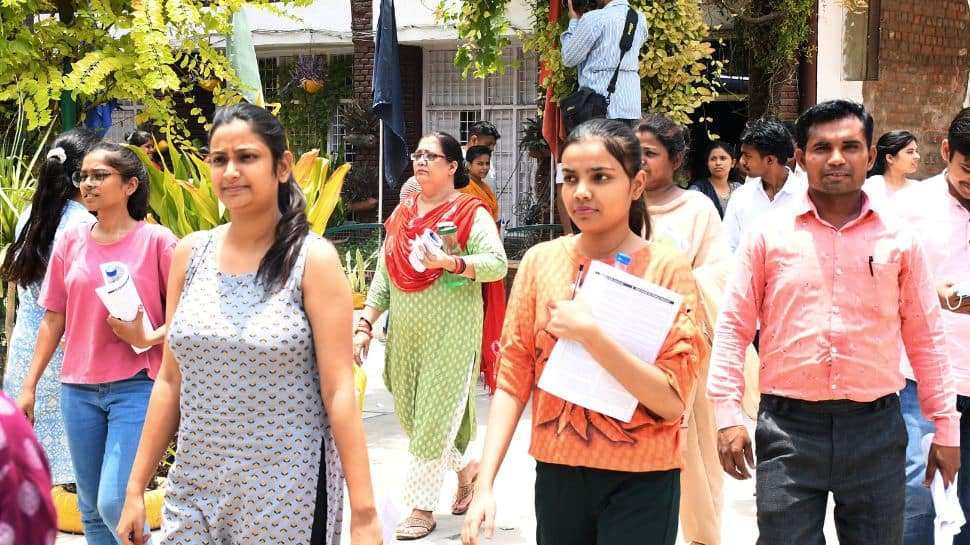 |
|
The University Grants Commission (UGC) has released draft guidelines that significantly alter the landscape of faculty recruitment in Indian higher education institutions. These changes, announced by Education Minister Dharmendra Pradhan, aim to infuse greater flexibility and inclusivity into the selection process, aligning with the overarching goals of the National Education Policy 2020 (NEP 2020). A key departure from previous regulations is the prioritization of the Ph.D. subject over the undergraduate and postgraduate disciplines of the candidate. This means that individuals can now qualify for faculty positions based on their doctoral specialization, even if their earlier academic background lies in a different field. This move is explicitly intended to foster a more interdisciplinary environment within universities, allowing for a broader range of expertise and perspectives among the faculty. The UGC Chairman, M. Jagadesh Kumar, highlighted this flexibility as a crucial step in breaking down rigid subject boundaries and enabling cross-disciplinary transitions within the academic realm.
The draft guidelines also address the much-criticized Academic Performance Indicator (API) system, which was a significant component of the 2018 regulations. The API system, heavily reliant on quantitative metrics like publication counts, often reduced academic performance to a purely numerical score. The new guidelines replace this with a more holistic, qualitative approach to candidate evaluation. Selection committees will now assess a broader spectrum of academic contributions, including innovative teaching methodologies, engagement with sustainability practices, entrepreneurial achievements, and promotion of Indian languages and knowledge systems. This shift underscores a move towards acknowledging the multifaceted nature of academic excellence, moving beyond simple metrics and embracing a more comprehensive evaluation of candidates' skills and contributions. This broader assessment framework aims to attract individuals who embody not only research expertise but also pedagogical innovation and commitment to broader societal contributions.
Beyond faculty appointments, the draft regulations also introduce substantial changes to the selection process for vice-chancellors (VCs). The revised criteria significantly broaden the eligibility pool, now encompassing professionals from various sectors beyond academia. This includes individuals with distinguished careers in research institutions, public policy, public administration, and industry. The inclusion of these diverse backgrounds aims to enhance the governance and leadership within higher education institutions, bringing in fresh perspectives and potentially improving administrative efficiency. The guidelines also provide clear stipulations on the composition of the VC search-cum-selection committee, their tenure, age limits, eligibility for reappointment, and the criteria for those who can serve on the selection committee. This increased transparency and clarity are expected to strengthen the overall integrity and effectiveness of the VC selection process.
The introduction of specialized recruitment pathways for fields like Yoga, Music, Performing Arts, and Sports is another significant element of the revised guidelines. This caters to professionals with exceptional skills and achievements in these areas, allowing them to contribute their expertise to academia. This inclusion reflects a broader understanding of the diversity of academic pursuits and aims to attract highly skilled individuals who might otherwise not have been considered for faculty positions. The guidelines also emphasize the need for increased transparency and accountability, providing clearer structures for faculty appointments and VC selections. The complete overhaul, therefore, aims to not only improve the quality of teaching and research within higher education but also to bring a more dynamic, inclusive, and holistic approach to academic leadership and governance.
The UGC has placed the Draft Regulations, 2025 in the public domain, inviting feedback, suggestions, and consultations. This participatory approach highlights a commitment to transparency and inclusive policy-making. Education Minister Dharmendra Pradhan expressed confidence that the final regulations will drive transformative changes in the education system, contributing towards the larger national goal of achieving ‘Viksit Bharat 2047’ through quality education and research. The wide-ranging implications of these changes – from revised faculty selection criteria to the revamped VC appointment process – will likely reshape the landscape of higher education in India, influencing not only the quality of teaching and research but also the overall governance and administrative structure of universities across the nation. The application of these new regulations to Central, State, Private, and Deemed Universities signifies a broad-based effort towards modernizing and revitalizing India's higher education sector.
Source: UGC Draft Guidelines Open Pathways For Faculty Posts Across Diverse UG And PG Disciplines
